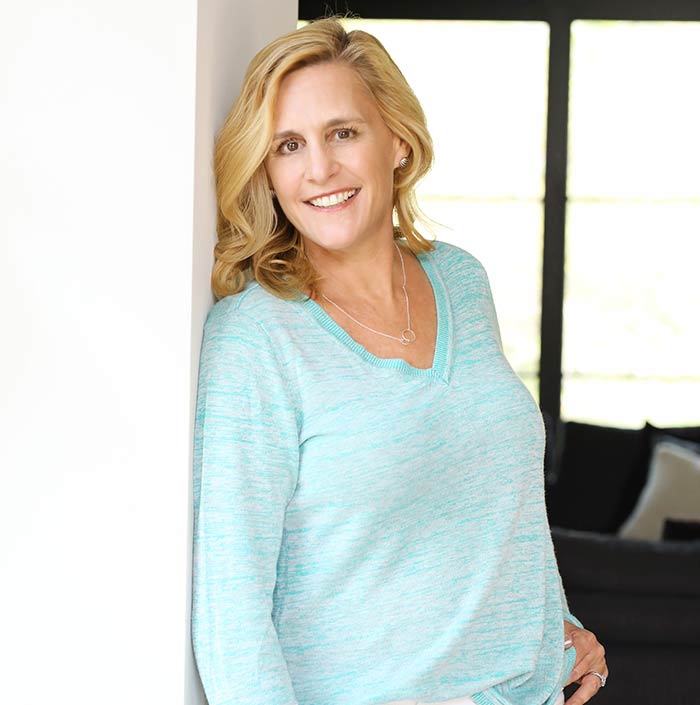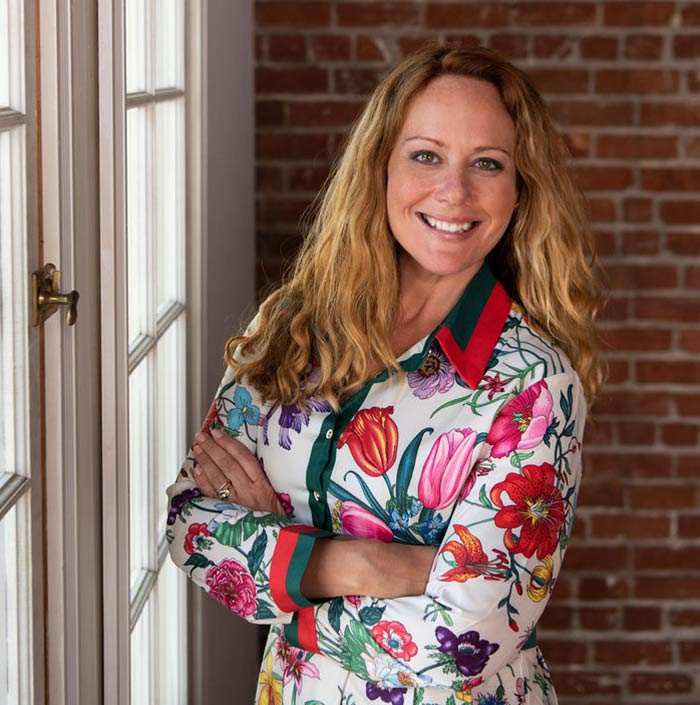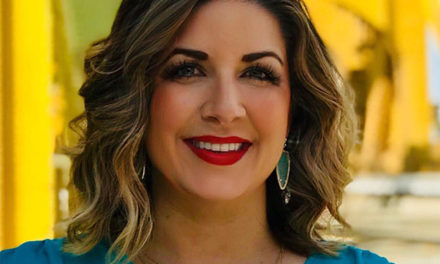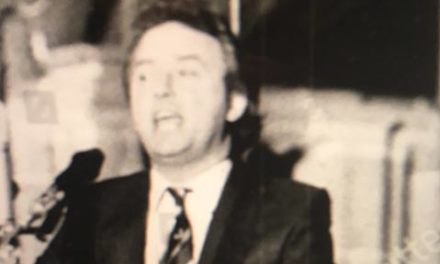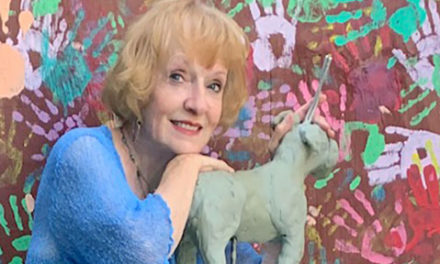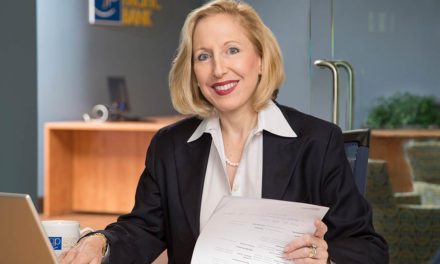Bridge The Gap Offers Leadership Lessons (and Zero Injuries)
A new business book for beginners and mid-career movers
By Ed Goldman
The first thing you should know is that “Bridge the Gap” is not a book about cosmetic dental surgery or civil engineering.
Written by Sacramento-area authors and speakers Jennifer Edwards and Katie McCleary, it’s an accessibly written guide for people starting their work lives in earnest—or wondering how, on their mid-career highway, Drive may have slipped into Neutral.
Jennifer Edwards by Tori Wible, Twible Photography
Published by McGraw-Hill (and available at book stores, Amazon and howtobridgethegap.com), the book’s subtitle offers a preview of the clarity the book’s prose strives for: “Breakthrough Communication Tools to Transform Work Relationships from Challenging to Collaborative.”
“We got the contract based on our proposal and one chapter,” says McCleary.
“We’d planned on writing something more scholarly, not popular,” says Edwards. “But McGraw-Hill saw it more as a business book for the masses.”
The three of us are lunching at Roxy, an airy eatery just beyond the state capital’s limits, one that attracts a nice mix of expense-account diners and unhurried friends by day and enthusiastic first-daters and Happy Hour devotees at dusk. It’s a good setting to ask the two authors about a book meant to help people connect, even when their agendas markedly differ.
“We sold this the old-fashioned query way, sending our proposal to one agent after another,” says McCleary who, not surprisingly, has mentored thousands of young writers, some from under-served communities, on getting their ideas down on paper—or, more likely, in their computers or their smartphones.
“Katie was our navigator,” Edwards says appreciatively. In fact, the book contains a number of navigational suggestions since its central theme seems to be how to create one’s own wayfinding system in the vast, shoal-filled expanse of the workplace. (The naval metaphors will now retire for the duration.)
Big news! Clinique is now on Amazon.
The #1 dermatologist guided skincare and makeup brand is on Amazon Premium Beauty for the first time. Shop trusted formulas across skincare, makeup, fragrance, and men’s products.
One, which I found problematic but the authors claim to have used themselves with serious success is to create a “personal board of directors,” which they describe as “a collection of advocates who can help keep you on track and moving forward.” (Don’t worry. We’re not switching to train metaphors.) The four suggested roles would be Mentor, Coach, Role Model and Encouraging Friend.
I ask the authors (a) why all of these roles couldn’t simply be played by the same individual (without resorting to trick photography and (b) why should four presumably busy businesspeople regularly take time out of their day to help you? As someone who’s sat still numerous times for a young person to pick my brain (the zombie-tinged term for it), I at least had the comfort of knowing it was probably a one-off engagement and might even result in someone buying me a cup of coffee in the process—though that, along with whether someone would even take notes as I rhapsodized, was far from guaranteed.
“Oh, you’d be surprised,” McCleary says, referencing a mutual acquaintance “who’s one of my very best friends” but whom McCleary cast in the role of Coach, rather than Encouraging Friend. In so doing she even told the friend her services as same wouldn’t be required. “But she’s a business professional who immediately understood what we were doing,” McCleary says.
“The personal board works all the time,” Edwards says, “because it feeds both parties’ heart and soul.”
Katie McCleary by Beth Baugher, True Love Photo
Edwards says that the underlying theme of the book is “pretty simple: We’re all living in this thing called a human suit. We can’t just zip it off so we’d better learn to wear it comfortably.”
McCleary says the target audience for the book is “everyday professionals” and that the principal communication lesson is to entice them into “listening without thoughts, opinions and biases in your mind” while being “physically, emotionally and intellectually present without internal or external distractions.” This makes me think of two things: the supposed objectivity of reporters (doesn’t exist, friends, but it’s a very moral goal) and a freeway sign that was shown in Look Magazine decades ago. It said, “IGNORE THIS SIGN.”
In short, is it really possible, or even desirable, to turn yourself off to spur a relationship onward?
“The key,” says McCleary, “is to try. Just doing that starts a positive dialogue.”
The authors, who both have master’s degrees and families, have serious creds.
For more than 15 years, Edwards has worked with Fortune 500 companies, corporate boards, entrepreneurs, and non-profits “helping them to manage their biological reactions when under pressure,” as she puts it. Her clients include C-Level executives at eXp, Edward Jones, Microsoft, WeWork, The American Red Cross and other major corporations and non-profits nationwide. A fourth-generation Californian, she lives in the Sierra foothills with her husband, Martin Menard, chief information officer for Pacific Coast Building Products.
McCleary is a founder of 916 Ink, a respected capital region nonprofit, where she estimates she’s worked with “4,000 vulnerable children and teens” and helped them become “confident authors featured in more than 200 publications.” She’s also certified as an Amherst Writers and Artists’ national facilitator who’s taught more than 10,000 people—”from lawmakers, educators, and entrepreneurs to foster kids, juvenile-justice involved teens, and incarcerated men”—the power of story “to fuel meaningful change.” She lives with her partner, Nicholas Miller, a sociology professor, with their “two kids and a menagerie of feathered and furry animals” in Fair Oaks.
As I mentioned, the book is an easy, thoughtful read. Take that from an everyday professional who’s inexplicably comfortable in his human suit.
Ed Goldman's column appears almost every Monday, Wednesday and Friday. A former daily columnist for the Sacramento Business Journal, as well as monthly columnist for Sacramento Magazine and Comstock’s Business Magazine, he’s the author of five books, two plays and one musical (so far).



